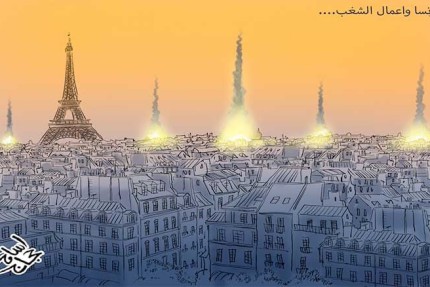Negaheno special edition
Holding Public Court in Damascus to Put the Zionist Regime on Trial

the Arab nation university held a public court at the convention center at Ibola hotel a court composed of judges, and advisors from Egypt, Algeria, Iraq, Lebanon and Syria with the aim of putting the Zionist regime on trial.
According to Negaheno report, this court was set up by the help of PhD students from several Syrian universities when the international penal court and other international courts were unsuccessful in condemning the Zionist regime.
The court panel was composed of several judges namely:
Mohammad Tay from Lebanon, head of the Qana center for the human rights and head of the public court panel, Menal Fenjan from Iraq, Dr. Hatif Rekabi, advisor to the international West minister organization in legislation, Ahlam Beyzoun, from Lebanon, member of the world gathering of democratic lawyers, Dr. Hassan Mahideli from Lebanon, lawyer of the court of appeal, Fowad Bakr from Palestine, head of the legal democratic branch for liberation of Palestine, Isa Moizeh from Algeria, Ali Al-Gheit ,Omar Ahmad from Egypt, and Dr, Yasser Kalzi , professor of international laws of Damascus university.
The head of the court explained the significance of this court and said: “This is not a formal court but it can be called a court of conscience in the name of free and oppressed nations who speak out on their behalf, for the international courts have overlooked them due to the political interests that are under the support of the United States that only signifies the killing, destruction, developing and selling of weapons.”
The court began with the statements raised by the PhD students before the court. The first issue was the killing of the civilians during wars and to penalize this within the international laws and the destruction of hospitals which is a violation of the fourth Geneva convention. Later it followed describing the actions and crimes perpetuated by the Zionist regime based on the international laws and punishments that has to be exerted based on the internal penal laws against this regime.
The statements also focused on the legitimacy of self- defense based on article two of the United Nations Charter that is a right internationally recognized. The Zionist regime had tried to neglect this right through the full support of the United States. The legal statements offered proved this law within the international laws and stressed on the need to legally criminalize the Zionist regime and to put it on trial based on the international laws due to its crimes against the civilians and hospitals and all their belongings.
In response to the statements and the appeals put forward the public court panel responded that what we have witnessed is to make decisions by the vigil conscience of the people and today we stand before a judicial resistance that is added to other media and public resistance. The court panel expressed hope that this court can work as a light for other Arab countries to condemn the Zionist regime.
This court also referred to a set of condemnations against the Zionist regime including the international killing and systematic destruction that continues since 1948. All this are regarded as the war crimes at an extensive level and violation of international, human laws and the genocide for reaching a greater crime that is the destruction of an entire nation and its people.
This court regarded these acts perpetuated by the Zionist militaries and the countries and organizations supporting this regime as a severe crime.
In the end, the works of those lawyers who were supporting Gaza were appreciated.Special report
Holding Public Court in Damascus to Put the Zionist Regime on Trial
Yesterday the Arab nation university held a public court at the convention center at Ibola hotel a court composed of judges, and advisors from Egypt, Algeria, Iraq, Lebanon and Syria with the aim of putting the Zionist regime on trial.
According to Negaheno report, this court was set up by the help of PhD students from several Syrian universities when the international penal court and other international courts were unsuccessful in condemning the Zionist regime.
The court panel was composed of several judges namely:
Mohammad Tay from Lebanon, head of the Qana center for the human rights and head of the public court panel, Menal Fenjan from Iraq, Dr. Hatif Rekabi, advisor to the international West minister organization in legislation, Ahlam Beyzoun, from Lebanon, member of the world gathering of democratic lawyers, Dr. Hassan Mahideli from Lebanon, lawyer of the court of appeal, Fowad Bakr from Palestine, head of the legal democratic branch for liberation of Palestine, Isa Moizeh from Algeria, Ali Al-Gheit ,Omar Ahmad from Egypt, and Dr, Yasser Kalzi , professor of international laws of Damascus university.
The head of the court explained the significance of this court and said: “This is not a formal court but it can be called a court of conscience in the name of free and oppressed nations who speak out on their behalf, for the international courts have overlooked them due to the political interests that are under the support of the United States that only signifies the killing, destruction, developing and selling of weapons.”
The court began with the statements raised by the PhD students before the court. The first issue was the killing of the civilians during wars and to penalize this within the international laws and the destruction of hospitals which is a violation of the fourth Geneva convention. Later it followed describing the actions and crimes perpetuated by the Zionist regime based on the international laws and punishments that has to be exerted based on the internal penal laws against this regime.
The statements also focused on the legitimacy of self- defense based on article two of the United Nations Charter that is a right internationally recognized. The Zionist regime had tried to neglect this right through the full support of the United States. The legal statements offered proved this law within the international laws and stressed on the need to legally criminalize the Zionist regime and to put it on trial based on the international laws due to its crimes against the civilians and hospitals and all their belongings.
In response to the statements and the appeals put forward the public court panel responded that what we have witnessed is to make decisions by the vigil conscience of the people and today we stand before a judicial resistance that is added to other media and public resistance. The court panel expressed hope that this court can work as a light for other Arab countries to condemn the Zionist regime.
This court also referred to a set of condemnations against the Zionist regime including the international killing and systematic destruction that continues since 1948. All this are regarded as the war crimes at an extensive level and violation of international, human laws and the genocide for reaching a greater crime that is the destruction of an entire nation and its people.
This court regarded these acts perpetuated by the Zionist militaries and the countries and organizations supporting this regime as a severe crime.
In the end, the works of those lawyers who were supporting Gaza were appreciated.
Comment
- Donald Trump is trying to impose a new world order.”
- Since the WWII, Europe has been a US Colony
- Trump is Following Washington national politics that were used prior to the WW2
- Trump’s Strategy about Venezuela is Based on James Monroe’s Doctrine
- “Somaliland”, A New US and Zionist regime project: A Unique and Remarkable Geographical Position of the Region
- Donald Trump is trying to impose a new world order.”
- Since the WWII, Europe has been a US Colony
- Trump is Following Washington national politics that were used prior to the WW2
- Trump’s Strategy about Venezuela is Based on James Monroe’s Doctrine
- “Somaliland”, A New US and Zionist regime project: A Unique and Remarkable Geographical Position of the Region
- Trump is Humiliating Europe: America’s Geopolitical Strategy has turned Violent
- video interview with Canadian author
- Trump Is After Reinfiltrating all the South American Countries
- Iraq: A New Power Geometry and the Future Challenges
- Donald Trump is a Complete Lunatic and a Narcissist
- We Do Not Wish to Transform Iraq into a Leverage for Targeting other Countries
- Donald Trump’s Public Support Has Reached its Minimum
- The Al-Shar regime is engaged in Killing the people of Syria instead of fighting Israel
- Donald Trump is trying to impose a new world order.”
- Since the WWII, Europe has been a US Colony
- Trump is Following Washington national politics that were used prior to the WW2
- Trump’s Strategy about Venezuela is Based on James Monroe’s Doctrine
- “Somaliland”, A New US and Zionist regime project: A Unique and Remarkable Geographical Position of the Region
- Trump is Humiliating Europe: America’s Geopolitical Strategy has turned Violent
- video interview with Canadian author
- Trump Is After Reinfiltrating all the South American Countries
- Iraq: A New Power Geometry and the Future Challenges
- Donald Trump is a Complete Lunatic and a Narcissist




